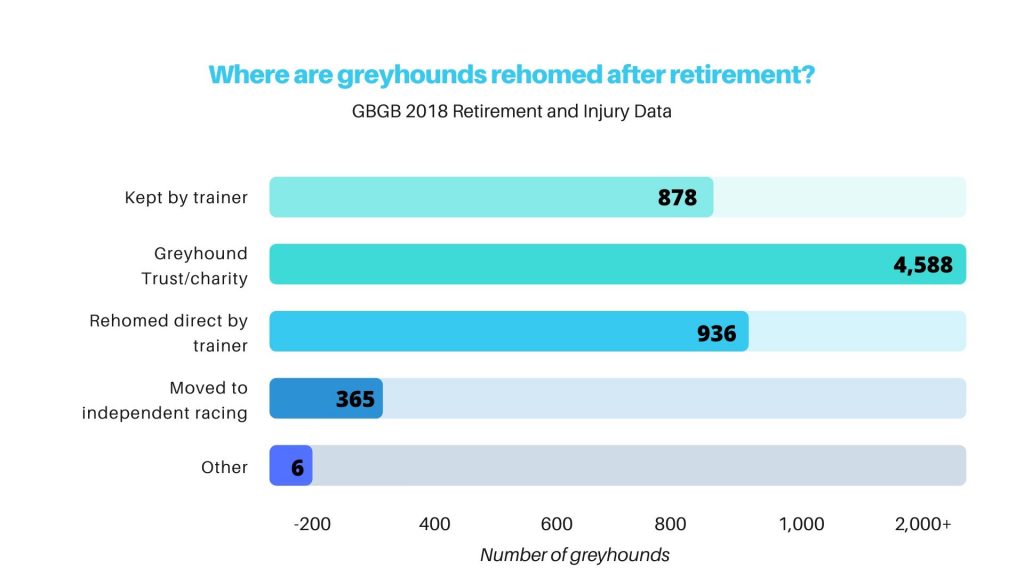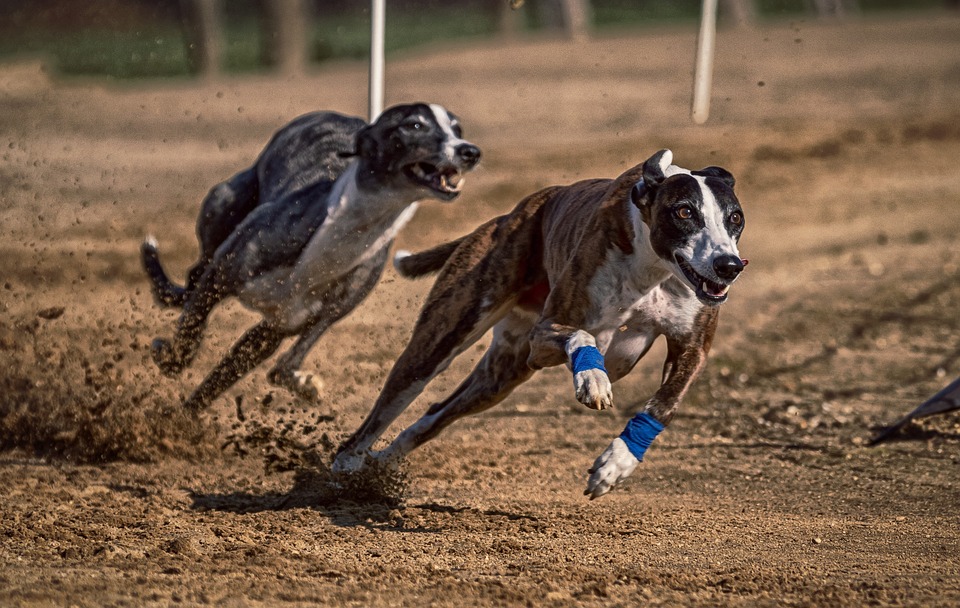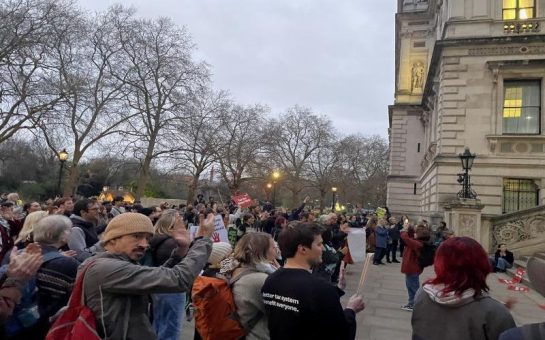By Kate Dennett
January 28 2020, 12.00
Follow @SW_Londoner
A greyhound racing director responded to protests that using the dogs for sports is ‘cruel’.
Greyhound Board of Great Britain managing director Mark Bird has been working to improve welfare in racing for the last four years.
Mr Bird responded to debates around greyhound welfare, saying GBGB needs more money coming in to make sure it can keep welfare standards high.
Unlike horse racing, there is no statutory levy for bookmakers to pay, with GBGB working with an £8m budget for 2020, when in reality £16m is needed to push the highest welfare standards possible.
GBGB spends around 75% of funding on welfare and integrity, which involved pre- and post-race testing and bringing kennels up to standard.
Mr Bird said: “If I can’t get the money in then there is no point in the sport continuing. You have to have the money to make sure they are not only looked after during their racing career, but after retirement as well.”

GBGB is starting a greyhound retirement scheme over the next few months. Owners will give a sum of money when they take in a racing dog, making sure that dog has money attached to it for homing on retirement.
Mr Bird wants to make sure all dogs are accounted for and responsibly homed and says if they have suspicions about a dog’s rehoming, they will send an investigator to find out where the dogs are.
DEFRA oversees GBGB and they are working together to improve euthanasia statistics after a 2015 review, where vets and outside groups gave evidence around greyhound racing legislation.
Since then, injury and retirement statistics have been published publicly for transparency.
Mr Bird said: “The figures which we are saying are unnecessary and are avoidable are the ones that are put down on economic grounds or are put down because their gait is unsuitable for being family pets.
“Those are the figures we want to push down. I am very confident that those numbers will have been driven down dramatically this year.
“We are getting the message across that these are not commodities, they are not something you use and then throw away. You have to look after the dogs during racing and in retirement. Don’t get me wrong, there is still more to do yet.”
Mr Bird said GBGB has asked people why they do, or do not, watch racing and the words that were repeated were ‘abuse’ and ‘boring’. He said GBGB wants welfare to drive everything it does for the sport to make sure standards remain high and attract new audiences.
He said: “Some people will say the death of one dog or the injury of one dog on the track is wrong. I get that, but I am trying to run the sport and do the very best by the dogs who are involved in the sport.
“Greyhounds love to race and love to run – they are not forced to run. If a dog doesn’t come out the trap, there is not a lot you can do to get them to start racing again.”

There are currently 21 tracks in the UK, three of which are independent ‘clapping’ tracks, which are not licensed by GBGB.
Mr Bird said: “We constantly keep looking at the viability of the UK tracks. We do not own those tracks – some are owned by bookmakers and the rest are all family-run or independent of GBGB. It is a difficult one to determine whether or not more tracks could close.”
Trainers currently decide whether a dog is suitable for rehoming but GBGB is working with animal welfare charities to challenge this. Mr Bird wants dogs assessed to stop unnecessary euthanasia and give dogs a chance, rather than writing dogs off if they are snappy in kennels.
Discussing an ongoing criminal case against one trainer, Mr Bird said: “A group opposed to greyhound racing sent someone to do some undercover filming. We are defending that case as we think it is malicious. It has been over-egged and the trainer isn’t guilty.”
GBGB is also making sure dogs are having regular dental and health checks throughout their careers, not just on retirement.
Many anti-racing protestors said dogs should not be kept in kennels during racing, as it makes the transition to domestic life harder.
Mr Bird said: “They have to be kept in kennels as there is too much within a home which they can pick up – chocolate biscuits and things – that are prohibited in racing and is not healthy for a dog. Things like caffeine and household medication, such as Lemsip, that if the dog was silly enough to take it, they would be exposed to things banned in racing. In terms of the transition from a racing environment to a home environment – it takes time.”
Mr Bird challenges people who want an end to racing and instead pushes for more money to come into the sport so greyhound racing can continue with the highest welfare standards possible.
Mr Bird said: “It is legitimate that they can have that view [that greyhounds shouldn’t be used for racing]. But if you speak to people who are involved in the sport, they would all say that greyhounds love to do this. There is no forcing dogs to do what they do. It is in the DNA of dogs.
“There is as much evidence to say that racing should continue. But as long as we, as a sport regulator, can say they have a high standard of care, then greyhound racing in the UK still has a place.”
GBGB launched the first in a series of short films this weekend promoting the rehoming of retired greyhounds.
Kelli Windebank, an assistant trainer and greyhound ambassador who is featured in the film, said:
“We were delighted to be a part of this film and to showcase the work that goes on behind the scenes in kennels throughout the country to match greyhounds with the right homes when they retire.”


